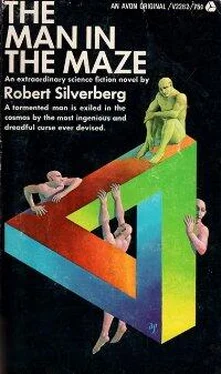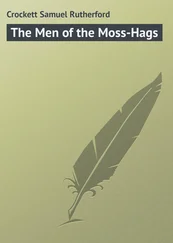“All right,” Hosteen said. “If we can get a machine past it, we can get a man past it. He closes his eyes, and the computer calculates his motions step by step. We’ll manage.”
The lead probe began to move again. It got seventeen meters past the place of the distorter before it was nailed by a silvery grillwork that abruptly thrust up a pair of electrodes and cut loose with a bath of flame. Rawlins watched bleakly as the next probe avoided that obstacle and shortly fell victim to another. Plenty of probes waited patiently for their turn to press forward.
And soon men will be going in there too, Rawlins thought. We’ll be going in there.
He shut off his data terminal and walked across to Boardman.
“How does it look so far?” he asked.
“Rough, but not impossible,” Boardman said. “It can’t be this tough all the way in.”
“And if it is?”
“We won’t run out of probes. We’ll chart the whole maze until we know where all the danger points are, and then we’ll start trying it ourselves.”
Rawlins said, “Are you going to go in there, Charles?”
“Of course. So are you.”
“With what odds on coming out?”
“Good ones,” said Boardman. “Otherwise I doubt that I’d tackle it. Oh, it’s a dangerous trip, Ned, but don’t overestimate it. We’ve just begun to test that maze. We’ll know it well enough in a few days more.”
Rawlins considered that a moment. “Muller didn’t have any probes,” he said finally. “How did he survive that stuff?”
“I’m not sure,” Boardman murmured. “I suppose he’s just a naturally lucky man.”
Within the maze Muller watched the proceedings on his dim screens. They were sending some sort of robots in, he saw. The robots were getting chewed up quite badly, but each successive wave of them seemed to reach deeper into the labyrinth. Trial and error had led the intruders to the correct route through Zone H and well onward into G. Muller was prepared to defend himself if the robots reached the inner zones. Meanwhile he remained calm at the center of it all, going about his daily pursuits.
In the mornings he spent a good deal of the time thinking over his past. There had been other worlds in other years, springtimes, warmer seasons than this; soft eyes looking into his eyes, hands against his hands, smiles, laughter, shining floors, and elegant figures moving through arched doorways. He had married twice. Both times the arrangements had been terminated peacefully after a decent span of years. He had traveled widely. He had dealt with ministers and kings. In his nostrils was the scent of a hundred planets strung across the sky. We make only a small blaze, and then we go out; but in his springtime and his summer he had burned brightly enough, and he did not feel he had earned this sullen, joyless autumn.
The city took care of him, after its fashion. He had a place to dwell—thousands of places; he moved from time to time for the sake of changing the view. All the houses were empty boxes. He had made a bed for himself of animal hides stuffed with scraped fur; he had fashioned a chair from sinews and skin; he needed little else. The city gave him water. Wild animals roamed here in such quantity that he would never lack for food so long as he was strong enough to hunt. From Earth he had brought with him certain basic items. He had three cubes of books and one of music; they made a stack less than a meter high and could nourish his soul for all the years that remained to him. He had some woman cubes. He had a small recorder into which he sometimes dictated memoirs. He had a sketchpad. He had weapons and a mass detector. He had a diagnostat with a regenerating medical supply. It was enough.
He ate regularly. He slept well. He had no quarrels with his conscience. He had come almost to be content with his fate. One nurses bitterness only so long before one grows a cyst around the place from which the poison spews.
He blamed no one now for what had happened to him. His own hungers had brought him to this. He had tried to devour the universe; he had aspired to the condition of a god; and some implacable guiding force had hurled him down from his high place, hurled him down and smashed him, left him to crawl off to this dead world to knit his broken soul as best he could.
The way stations on his journey to this place were well known to him. At eighteen, lying naked under the stars with warmth against him, he had boasted of his lofty ambitions. At twenty-five he had begun to realize them. Before he was forty he had visited a hundred worlds, and was famous in thirty systems. A decade later he had had his delusions of statesmanship. And at the age of fifty-three he had let Charles Boardman talk him into undertaking the mission to Beta Hydri IV.
That year he was on holiday in the Tau Ceti system, a dozen light-years from home. Marduk, the fourth world, had been designed as a pleasure planet for the mining men who were engaged in stripping her sister worlds of a fortune in reactive metals. Muller had no liking for the way those planets were being plundered, but that did not prevent him from seeking relaxation on Marduk. It was nearly a seasonless world, which rode upright in its orbital plane; four continents of unending springtime bathed by a tranquil shallow sea. The sea was green, the land vegetation had a faint bluish tinge, and the air had a little of the sparkle of young champagne. They had somehow made the planet into a counterfeit of Earth—Earth as it might have been in a more innocent time—all parks and meadows and cheery inns; it was a restful world whose challenges were purely synthetic. The giant fish in the seas always wearied and let themselves be played. The snowcapped mountains looked treacherous, even for climbers in gravitron boots, but no one had been lost on them yet. The beasts with which the forests were stocked were tall at the withers and snorted as they charged, but they were not as fierce as they looked. In principle, Muller disapproved of such places. But he had had enough adventure for a while, and he had come to Marduk for a few weeks of phony peace, accompanied by a girl he had met the year before and twenty light-years away.
Her name was Marta. She was tall, slim, with large dark eyes fashionably rimmed with red, and lustrous blue hair that brushed her smooth shoulders. She looked about twenty, but of course she might just as well have been ninety and on her third shape-up; you never could tell about anyone, and especially not about a woman. But somehow Muller suspected that she was genuinely young. It wasn’t her litheness, her coltish agility—those are commodities that can be purchased—but some subtle quality of enthusiasm, of true girlishness that, he liked to think, was no surgical product. Whether power-swimming or tree-floating or blowdart hunting or making love, Marta seemed so totally engaged in her pleasures that they surely were relatively new to her.
Muller did not care to investigate such things too deeply. She was wealthy, Earthborn, had no visible family ties, and went where she pleased. On a sudden impulse he had phoned her and asked her to meet him on Marduk; and she had come willingly, no questions asked. She was not awed to be sharing a hotel suite with Richard Muller. Clearly she knew who he was, but the aura of fame that surrounded him was unimportant to her. What mattered was what he said to her, how he held her, what they did together; and not the accomplishments he had accumulated at other times.
They stayed at a hotel that was a spire of brilliance a thousand meters high, thrusting needle-straight out of a valley overlooking a glassy oval lake. Their rooms were two hundred floors up, and they dined in a rooftop eyrie reached by gravitron disk, and during the day all the pleasures of Marduk lay spread out before them. He was with her for a week, uninterrupted. The weather was perfect. Her small cool breasts fit nicely into his cupped palms; her long slender legs encircled him pleasantly, and at the highest moments she drove her heels into his calves with sudden delicious fervor. On the eighth day Charles Boardman arrived on Marduk, hired a suite half a continent away, and invited Muller to pay a call on him.
Читать дальше












